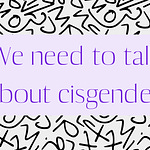Hi Overthinkers!
Apologies for the late newsletter this month. As many of you will be aware, the UK government inadvertently outlawed sex outside of cohabitation last week (on which more below). As a result I got an unexpected assignment which threw my schedule out. But I’m here now!
That’s not the only thing that’s left me feeling conflicted about my s…











